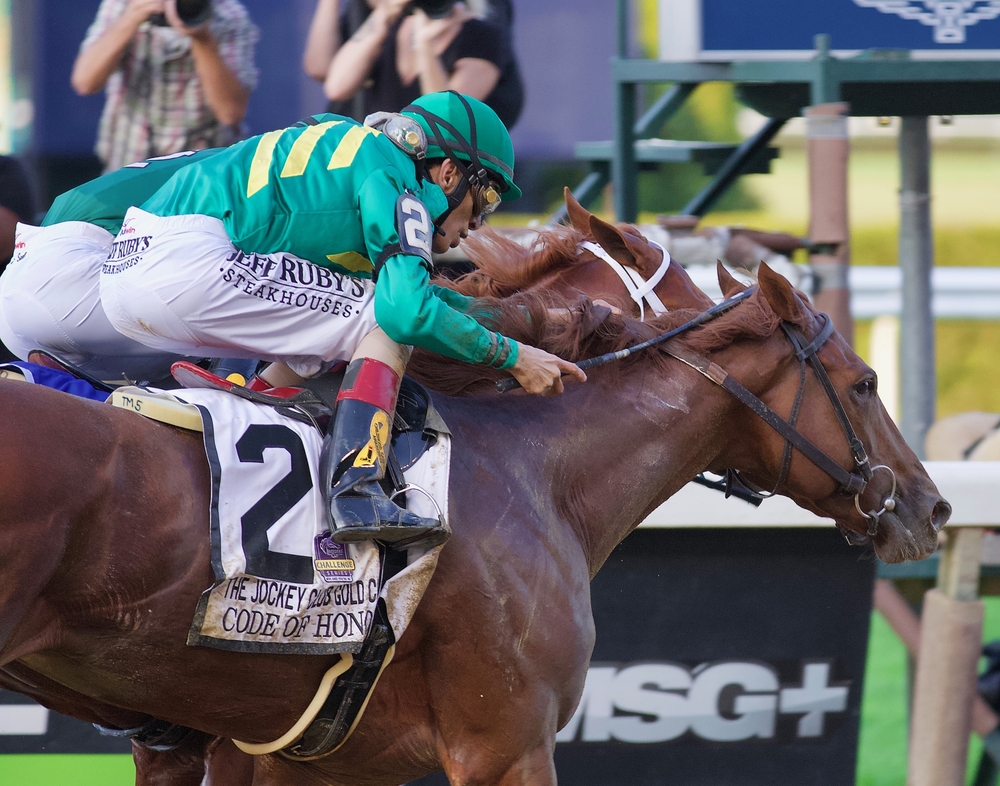The UK Gambling Commission stands as the principal regulatory body responsible for supervising gambling and lottery activities within Great Britain. Established under the Gambling Act 2005, the Commission is tasked with ensuring that the gambling industry operates fairly and transparently, while also providing protection for vulnerable individuals, including children and those at risk of gambling addiction. It holds the authority to issue licenses to operators, as well as to advise and guide the government on gambling-related issues.
The commission is also responsible for the enforcement of gambling legislation, monitoring industry practices to ensure compliance with legal standards and addressing any misconduct. Its role extends to engaging with the public by providing resources and information to foster an understanding of gambling laws and players’ rights. By maintaining oversight over the financial aspects of the gambling sector, ensuring operators meet their obligations and watching over the integrity of gambling practices, the Commission plays a pivotal role in shaping the future landscape of gambling in the UK.
Key Takeaways
- The UK Gambling Commission regulates legal gambling activities to ensure fairness and transparency.
- The Commission has authoritative power to enforce compliance and protect the public interest.
- It provides valuable resources to the public and informs future legislative developments in the gambling sector.
The Role and Objectives of the UK Gambling Commission
The UK Gambling Commission serves as a critical regulatory body within the British gambling industry, tasked with overseeing compliance and maintaining the integrity of gambling activities. This includes the regulation of the National Lottery under the Gambling Act 2005 and formulating strategic aims in keeping with its established objectives.
Regulatory Powers and Responsibilities
The Gambling Commission, as a non-departmental public body, holds the authority to regulate commercial gambling within Great Britain. Its powers, bestowed by the Gambling Act 2005, include:
- Issuing Licences: Only operators holding a Gambling Commission licence may offer gambling services in Great Britain.
- Ensuring Compliance: The commission monitors licensees to ensure they follow legal requirements and provides guidance to maintain standards.
- Legal Enforcement: It has the capacity to impose fines, revoke licences, and prosecute non-compliant operators.
National Lottery and Gambling Act 2005
Under the Gambling Act 2005, the Gambling Commission assumed responsibility for the National Lottery from the National Lottery Commission. Their objectives are to:
- Protect Players: It ensures that player interests are safeguarded, and games are offered fairly.
- Ensure Propriety: The commission verifies that the National Lottery is operated with integrity and that lottery proceeds are returned to charitable causes.
Aims and Strategy
In alignment with the Department for Digital, Culture, Media & Sport, the UK Gambling Commission has established clear strategic objectives:
Protecting the Vulnerable: It aims to safeguard children and vulnerable individuals from gambling-related harm.
Ensuring Fair Play: A focus is placed on promoting a fairer market and well-informed consumers.
Preventing Crime: The commission strives to keep gambling free from crime and ensure operations are transparent and accountable.
These coordinated efforts underscore the commission’s commitment to regulate the gambling sector effectively while fostering a safe environment for consumers.
Licensing and Compliance
The UK Gambling Commission ensures that gambling operators adhere to the stringent conditions set forth for various types of gambling licences. Through rigorous licensing processes and compliance assessments, it upholds the integrity of the gambling industry.
Types of Gambling Licences
There are different licences for operators within the UK gambling industry depending on the nature of their business. Operators may obtain licences for land-based gambling such as arcades, betting shops, and casinos, or for remote gambling which includes online gambling websites and mobile applications. Licences are specific to the services offered; for example:
- Operating Licence: Required for running betting services, bingo games, casinos, and lotteries, or providing gambling software.
- Personal Licence: Individuals performing specified management functions or operational roles within a licensed operator must hold this licence.
- Premises Licence: For land-based gambling, necessary for the physical location where gambling activities occur.
Licensing Process
The licensing process is comprehensive and designed to assess an operator’s suitability to offer gambling services. Operators must submit detailed applications to the Gambling Commission, which then evaluates the applications, considering factors like the integrity of the applicant, their financial stability, and the robustness of their operational procedures. Key points include:
- Application Submission: A complete application with accompanying documents.
- Assessment: Thorough review by the Commission, including background checks and financial assessments.
- Decision: The Gambling Commission will either grant, refuse, or offer a licence with conditions.
Compliance Assessments
Compliance with licence conditions is mandatory for gambling operators. The Gambling Commission conducts assessments to ensure that licence holders operate in alignment with the Act and regulatory requirements. Assessments include evaluating the integrity of gaming equipment, the fairness of gambling activities, and the protection of customers. If non-compliance is detected, actions such as fines, licence suspension, or revocation can be taken. The Commission also has the power to amend or attach additional conditions to licences if necessary. Compliance assessments can include:
- Routine Inspections: Regular checks to ensure ongoing adherence to licence conditions.
- Investigations: In-depth probes triggered by customer complaints or suspicion of licence violations.
- Audit Reports: Operators may be required to submit periodic documentation for examination by the Commission.
Operators’ licence status, a public register of which is maintained by the Gambling Commission, can be impacted by the outcomes of these assessments, reflecting the operator’s current compliance standing.
Safeguarding the Public
In its ongoing commitment to uphold the integrity of the gambling industry, the UK Gambling Commission implements stringent measures to safeguard the public, focusing on the protection of vulnerable individuals, crime prevention, and the enforcement of gambling limits and regulations.
Protection of Vulnerable People
The UK Gambling Commission emphasises the protection of vulnerable people, including children and those at risk of problem gambling. Operators are required to follow strict codes of practice that detail the need for verifying age to protect children from gambling and for identifying and supporting vulnerable people. The introduction of platforms like GAMSTOP allows customers to self-exclude from online gambling services, which is a key component in prevention and treatment of gambling addiction.
Crime Prevention
To prevent gambling from being a source of crime, the Commission mandates that operators abide by legal frameworks designed for crime prevention. These frameworks necessitate operators to have robust systems in place to detect and deter money laundering and fraud. Regular reviews are conducted to ensure operators follow the principles set forth. Funds used in gambling are also closely monitored to safeguard against the use of illicit money.
Gambling Limits and Regulations
The Commission enforces limits and regulations to ensure gambling is conducted in a safe and controlled manner. The operators are obligated to offer tools that allow consumers to set their own limits on time and money spent gambling. These controls, combined with clear information on risks and support for problem gamblers, contribute to a responsible gambling environment. Additional legislative measures are periodically enacted following public and stakeholder consultations to update and strengthen the regulatory framework.
Monitoring and Enforcement
The UK Gambling Commission ensures strict adherence to gambling regulations through diligent monitoring and enforcement. This rigorous approach is designed to maintain the integrity of the gambling sector.
Regulatory Reviews and Actions
Monitoring: The Gambling Commission conducts continuous monitoring of licensed betting operators to detect any breaches of compliance or instances of money laundering. It employs a range of investigative tools and enforcement powers to assess any suspected failures.
- Review Process:
- Initial Assessment – Examination of potential non-compliance.
- In-depth Review – A detailed analysis if initial concerns are substantiated.
- Sanctioning – Imposing fines or revoking licences if violations are confirmed.
Actions Taken:
- License suspension
- Financial penalties
- Revocation of licences
Complaint Handling
Complaint Processes: They manage a structured procedure for handling complaints, which involves an investigation into the issue raised by the complainant. This process is critical in identifying and addressing any misuse of betting services or betting integrity issues.
- Assessment Stages:
- Receipt and Logging – Documenting the complaint received.
- Examination – Evaluating the complaint against regulatory standards.
- Resolution – Resolving the complaint through appropriate actions or sanctions.
Complaint Outcomes:
- Operator guidance and advice
- Regulatory settlements
- Public statements regarding the nature of the complaint and actions taken
Industry Standards and Guidelines
The UK Gambling Commission sets forth a comprehensive set of standards and guidelines governing all forms of gambling, including betting sites, bingo, casinos, and arcades. These standards ensure that gambling is conducted in a fair and open manner, offering protection to both consumers and operators.
Advertising Rules and Guidelines
The UK Gambling Commission mandates that all advertising for gambling products and services must be done responsibly. The advertising rules prohibit appealing to minors, suggesting that gambling can solve financial issues, or linking gambling to sexual success. The following principles must be adhered to:
- Truthfulness: Advertisements must not mislead or deceive.
- Social Responsibility: Marketing efforts should not promote excessive gambling.
- Compliance: All gambling advertising must follow the UK Advertising Codes, which are regulated by the Committees of Advertising Practice (CAP).
Operators are expected to observe these rules strictly; failure to do so can result in significant penalties.
Terms and Conditions for Operators
Operators in the gambling industry are required to provide terms and conditions that are transparent and easily accessible. A concise summary of the terms and conditions must be available, detailing:
- How bets are placed and settled.
- The process for claiming winnings.
- The operator’s approach to responsible gambling.
Local authorities, working alongside the Gambling Commission, ensure these requirements are met to safeguard bettors.
Codes of Practice and Guidance
The Gambling Commission has developed multiple codes of practice that set the industry benchmarks for various sectors within gambling—the betting industry included. These encompass:
- Conduct and integrity expected of operators.
- Best practices for interacting with customers.
Additionally, the Commission provides guidance to licensing authorities to ensure they can effectively regulate and insightfully assist the businesses under their jurisdiction. This cooperative approach between the Commission, local authorities, and operators is crucial for maintaining a well-regulated gambling environment.
Engagement with the Industry and Government
The UK Gambling Commission actively engages with various governmental bodies and businesses within the gambling sector to ensure regulatory compliance and promote responsible gambling. This section details these important relationships and their impact on the industry.
Liaison with Governmental Bodies
The Gambling Commission works closely with governmental bodies, including the Department for Digital, Culture, Media & Sport (DCMS) and other relevant agencies. The Commission’s framework document, as outlined on GOV.UK, details its core responsibilities and the governance structure that defines these interactions. Coordination efforts are crucial for a seamless strategy across Great Britain served by the partnership between the Commission and the Secretary of State for Digital, Culture, Media & Sport.
- Strategic involvement: The Commission contributes to formulating gambling-related policy and regulation by providing expert advice to various government departments.
- Legislation and policy updates: They keep government entities informed with accurate, current data to shape future legislation.
- Collaboration examples: An instance of this is the Gambling Act 2005 review, which reflects the Commission’s aim to update existing laws to be fit for the digital age.
Business and Operator Engagement
Engagement with the business sector is pivotal for the Commission to observe the gambling landscape and deliver its regulatory objectives. The Commission maintains a dialogue with organisations in the gambling industry, focusing on compliance and best practices to minimise harm.
- Roles and responsibilities: Among its duties, the Commission ensures that businesses meet the standards as stipulated in the Gambling Act 2005.
- Interaction with operators: Frequent engagement with operators helps the Commission stay informed about industry trends and issues, allowing for proactive management of risks and enforcement of regulations.
In working with both governmental bodies and businesses, the Commission underscores the importance of responsible gambling strategies. It encourages businesses to not only comply with regulations but also to actively participate in the development of safer gambling practices. Sponsorships and partnerships in the industry are evaluated with a critical perspective to prevent any harm that could arise from gambling-related activities.
Public Information and Resources
The UK Gambling Commission provides a plethora of information and resources aimed at promoting safer gambling and ensuring that the gambling industry operates fairly and openly.
About the UK Gambling Commission
The UK Gambling Commission is the regulatory body responsible for overseeing gambling activities in Great Britain. It ensures that the gambling industry complies with the laws and regulations set forth in the Gambling Act 2005. The commission’s remit covers a range of gambling activities, from the National Lottery to bookmakers and online betting sites. They maintain a Public Register, offering transparency and an avenue for obtaining information about licensed operators.
Resources for the Public
Support Services: The Commission assists the public with locating support for gambling-related issues. Their website acts as a gateway for accessing help and provides links to organisations that offer support and counselling services.
Resources Available:
- Background Papers: Documents for stakeholders, which set out the rationale for treating gambling harm as a public health concern.
- Guidance Documents: Publications that help licensing authorities understand their duties and responsibilities.
- Reform Information: Material on reforms aimed at protecting vulnerable individuals from gambling harm, such as stake limits for online slots.
- Public Register: An accessible database listing all licensed operators, ensuring transparency within the gambling sector.
This public information and the resources provided ensure that individuals, local authorities, and operators can make informed decisions and understand the framework within which the gambling industry operates.
Financial Oversight and Utilisation
The UK Gambling Commission’s role extends to the financial oversight of the gambling industry, ensuring funds are managed responsibly, and transparency with regards to sponsorship and funding is maintained.
Funding and Sponsorship
The Gambling Commission does not receive funding from the UK government but rather funds its operations through licensing fees collected from gambling operators. These fees are structured to cover the costs of regulating the sector and to ensure that the commission operates independently of commercial interests. Sponsorship rules set by the commission are stringent to prevent conflicts of interest, ensuring that decisions are not influenced by external financial support.
Management of Lottery and Gambling Funds
The National Lottery, operated by Camelot Group until 2023, is a significant contributor to good causes, with a portion of ticket sales allocated to community projects across the UK. Retailers selling lottery tickets earn a commission on sales, which contributes to local economies. Gambling funds, generated from activities across all licensed venues, are subject to strict financial checks and consultations to prevent gambling-related harm and to deter criminal activities, as mandated by the Gambling Commission.
Future Developments and Focus Areas
The UK Gambling Commission has outlined a comprehensive strategy for the forthcoming three-year period, underscoring flexibility and adaptability in its regulatory approach to keep pace with the fast-evolving gambling landscape. Key priority work will be executed to ensure robust regulation and safety within the industry.
Strategic Priorities:
- Assessment and Innovation: The Commission is poised to conduct periodic reviews of its regulatory frameworks, embedding innovation to streamline its processes.
- Data and Evidence: A people-focused and evidence-led regulatory approach highlights the importance of enhanced data collection and research to inform policy and decision-making.
Future developments include targeted actions that address the ever-changing dynamics of gambling activities, aiming to improve regulation and outcomes for consumers. The emphasis will be on harnessing better research and more comprehensive evidence to drive positive change.
Planned Improvements:
- Regulatory Activities: Strengthening the core activities for the period of 1 April 2023 to 31 March 2024, ensuring they receive adequate support and resources.
- Workplace Excellence: The Commission, being recognized as an excellent workplace, is committed to maintaining an effective and inclusive working environment. This internal focus is critical to its external regulatory success.
By articulating clear strategic objectives, the Gambling Commission demonstrates its commitment to not only safeguarding the present regulatory framework but also to exploring forward-looking initiatives that foster continuous improvement and regulation enhancement.
Frequently Asked Questions
The UK Gambling Commission is the regulatory authority for gambling activities within the UK. It provides guidance and oversight to ensure gambling is conducted fairly and responsibly. Here are some of the most frequently asked questions about its operations.
How can one submit a complaint to the UK Gambling Commission?
Individuals can submit a complaint to the UK Gambling Commission by contacting the Commission through their official website. Complaints can be related to any form of gambling regulated by the Commission.
What are the requirements for obtaining a gambling licence in the UK?
To obtain a gambling licence in the UK, operators must meet the standards set by the UK Gambling Commission, which include demonstrating integrity, financial stability, competence, and a commitment to responsible gambling practices.
How can one contact the UK Gambling Commission via telephone?
One can contact the UK Gambling Commission by telephone on the National Gambling Helpline at 0808 8020 133. This service is available 24 hours a day, 7 days a week, and is free of charge.
What are the current gambling laws and regulations in the UK?
The primary legislation governing gambling in the UK is the Gambling Act 2005. It regulates all forms of gambling and provides the framework for the operation of the UK Gambling Commission.
What is the cost involved in acquiring a gambling licence in the UK?
The cost of a gambling licence in the UK varies depending on the type of gambling operation. Fees are structured to cover the cost of regulating the sector and are outlined in the Licence Fees section on the Gambling Commission’s website.
What principles does the UK Gambling Commission operate by?
The UK Gambling Commission operates on principles set out in the Gambling Act, focusing on keeping gambling fair and safe for all. This includes protecting children and vulnerable people, preventing gambling from being a source of crime or disorder, and ensuring gambling is conducted transparently.





